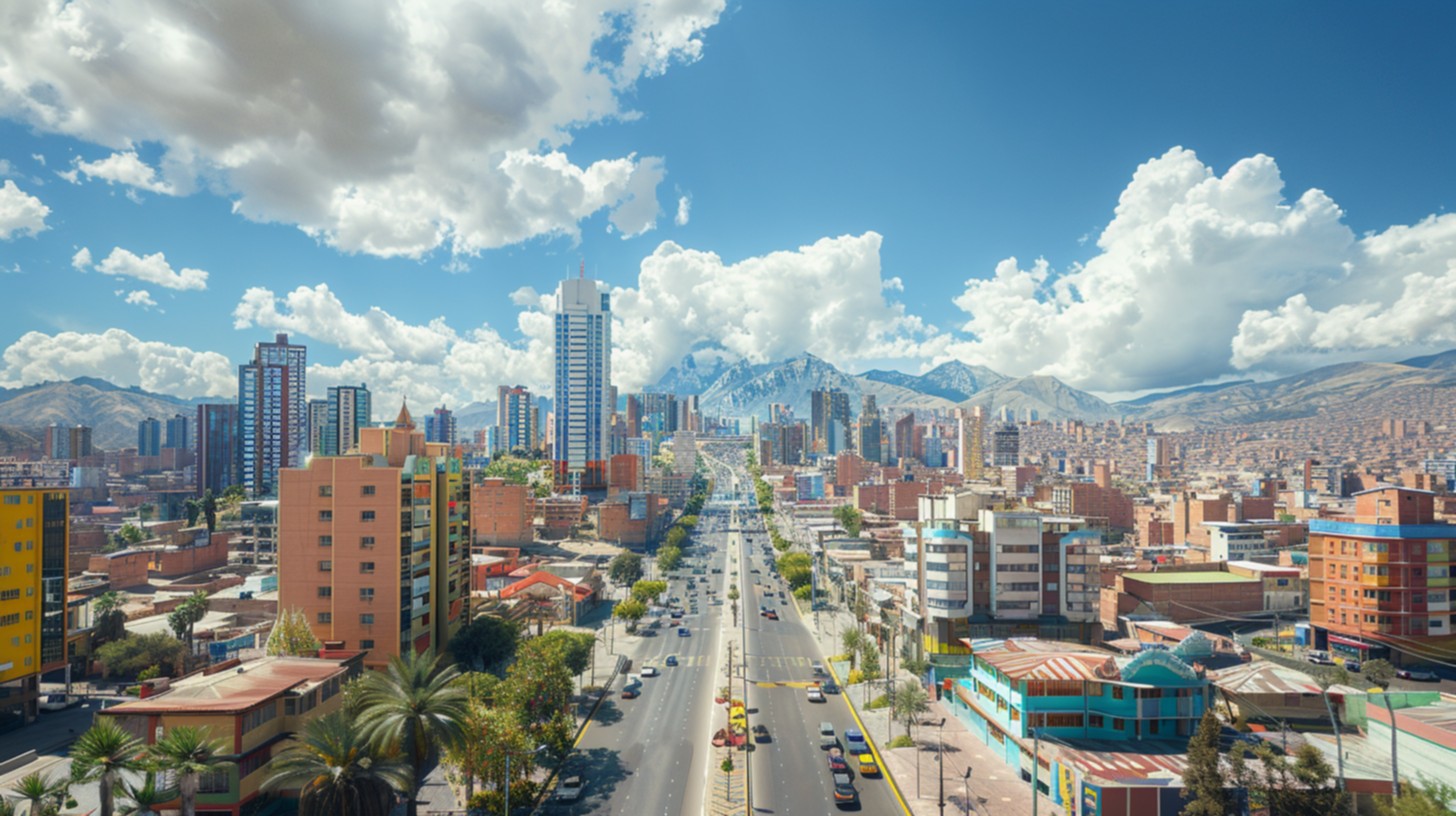
Surrounded by lofty, snow-capped mountains, La Paz, Bolivia's de facto capital, may seem highly metropolitan given its towering skyscrapers, glittering city lights, and bustling streets. However, a stone's throw beyond the urban facade, you enter a realm of tranquillity, natural beauty, and rustic simplicity - the countryside. Rich farmlands that stretch out as far as the eye can see, a diverse array of crops, and farmers working tirelessly, the rural surroundings of La Paz offer a taste of pure country life that is both serene and rejuvenating.
Commencing your journey from the thriving city center, the first stop on the countryside tour are the Valle de las Animas(Valley of the Souls) farms. Located a mere 30-minute drive south of the city center, it's a comparatively less-traveled location, offering stunning views of the Andean valley, edged by thousands of needle-like rock formations. The farms here primarily grow maize, quinoa, and potatoes – the latter being an integral part of Bolivian cuisine. In fact, Bolivia boasts more than 4000 different types of potatoes, and many farmers take immense pride in their potato cultivation, often willing to share tales of their farming techniques, crop cycles and even some family recipes.Quinoa, a grain crop that's a dietary staple in the Andean region, is another highlight of these farms. Seeing the crop growth from its initial stages to the harvest can be quite an enlightening experience.
From the authentic experience in the Valle de las Animas, you can continue deeper into the countryside to visit the vibrant farms of Coroico. The scenic drive to Coroico, located 2-3 hours from La Paz on Bolivia's infamous Death Road, is best done with a tour guide. However, the journey is well worth it for the views, and farms dotting the subtropical Andean valley are a sight to behold. Here, the farming landscape shifts dramatically from maize and potatoes to coca leaves, coffee, citrus fruits, and avocados, due to the region's unique climate.Check out the location here.
In addition to its agricultural riches, Coroico pulls in visitors with its relaxed vibe and charming colonial architecture. During your visit, consider giving back to the local community by purchasing their organic, home-grown produce. Such a move not only supports local farmers but also provides you with the freshest ingredients possible.
If the drive to Coroico sounded a bit too adventurous and you prefer staying closer to the city, the fertile regions of Sorata and Sopocachi are excellent substitutes that showcase the same rural charm and warmth of Bolivian countryside.
The farms in Sorata, located just an hour north of the main city, favor maize and fruit cultivation. Prominent fruits are Pacay, Tumbo, and a variety of oranges. Meanwhile, Sopocachi, on the outskirts of La Paz, is known for its suburban charm, residential vibe, and small-scale farming activities. Exploring the backyard farms and their city-adapted farming techniques can be an interesting deviation from the traditional countryside experience.
When planning your journey to book hotels in La Paz, try to choose accommodation closer to the city center. Aside from attaining a better connection for your country tours, you’ll also be in proximity to some of the city’s well-known attractions, ensuring an immersive experience of both city and country life.
Exploring the surrounding farms offers an opportunity to appreciate the hard work and dedication that goes into food production. During your visit, take time to speak to local farmers, be intrigued by their knowledge and experiences, and thank them for their tireless efforts. It will make your visit not only informative but also deeply rewarding.
The beauty of La Paz extends beyond the city's borders into the vibrant rural outskirts where the country's gastronomic heart thrives. Whether you are an enthusiastic foodie or nature lover, the farms surrounding La Paz offer an unforgettable exploration of Bolivian country life at its most authentic.